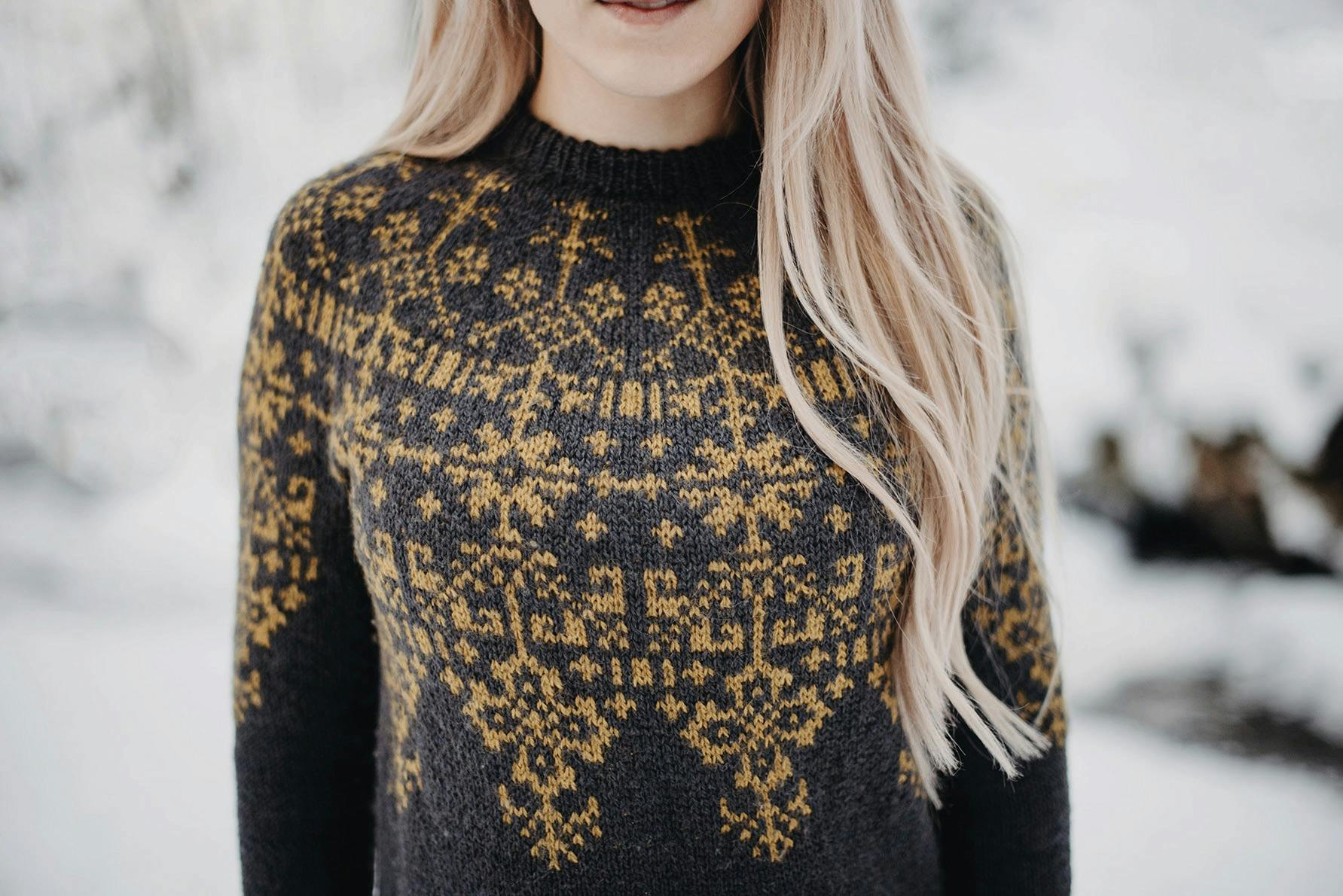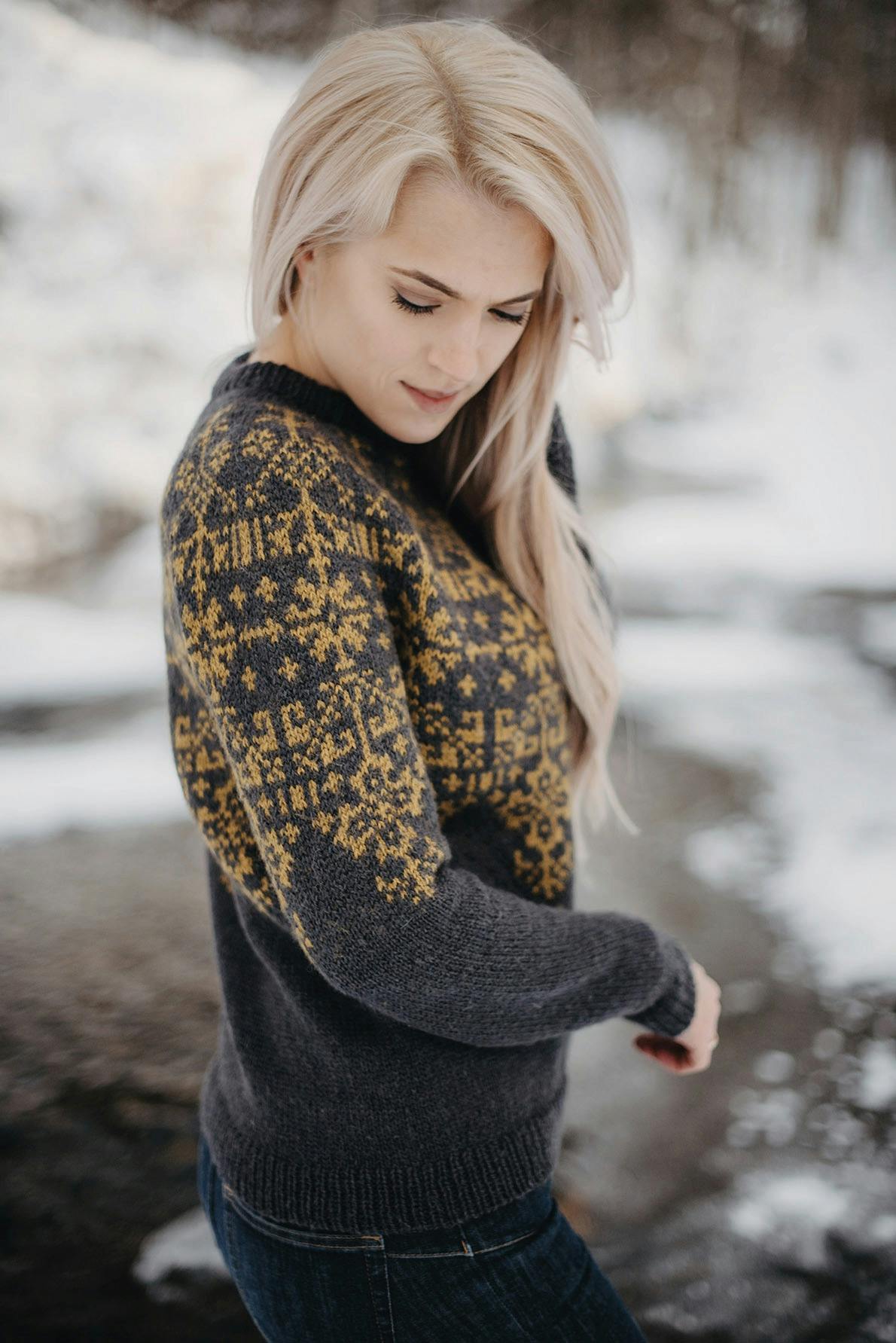Pagan sky
Description
The pagan sky was inspired by Latvian folklore and the energetic significance of ancient Latvian signs of strength.
In Latvian mythology, the sky is considered to be the oldest deity of the cult of light, it is the roof of the world, the sphere in which the leading force resides.
The sweater is knitted from alpaca yarn and accented with combinations of amber Latvian characters. They show the sign of Dievs (God) - the basis of all Latvian writings, the sign of the feminine Saule (Sun), the cross of Māra and elements of Austra (dawn) tree. These strong Latvian signs were used by our ancestors for beauty, strength and protection and are still very much in use today.
Finished bust circumference:
- 84 (96, 106, 114, 124, 136) cm
- 33½ (38½, 42½, 45½, 49½, 54½)''
Designed to be worn with 5-16cm / 2-6½'' ease around the bust, to fit busts with circumference:
- 70-79 (80-89, 90-99, 100-109, 110-119, 120-129) cm
- 28-32 (32-36, 36-40, 40-44, 44-48, 48-52)''
Languages
- English
- Latvian
Sizes
75 (85, 95, 105, 115, 125)
Yardage
Main colour:
- 755 (830, 900, 975, 1045, 1120) m
- 830 (910, 980, 1070, 1140, 1220) yds
Contrasting colour:
- 195 (215, 235, 255, 270, 290) m
- 210 (240, 260, 280, 300, 320) yds
Yarn in sample
Yarns used in sample (size 85) are 5 skeins of Rowan Moordale (70% Wool 30% Alpaca, 230m/100g): 4 skeins in Ash colourway as the main colour and 1 skein in Turmeric colourway as the contrast colour.
Yarn weight
DK
Suggested needles
- 4-4.5mm (US 6-7) circulars 60cm / 24''.
- 3.5mm (US 4) circulars or DPNs for small circumference knitting.
Pattern Category
Sweater
Difficulty
Intermediate
Gauge
20 sts & 24 rows = 10 cm / 4"
Pattern for gauge
in Colourwork stockinette st, blocked
Notions
Crochet hook, smooth waste yarn (e.g. cotton), stitch markers, row counter, stitch holder, tapestry needle.
Techniques used
Provisional cast-on, backwards loop cast-on, left-leaning and right-leaning increases, tubular bind-off, trapping floats, short rows.
Notes
The sweater is worked seamlessly in the round from the top down. To avoid tension tightening when working colourwork, it is important to keep the floats on the back side of work somewhat loose.


